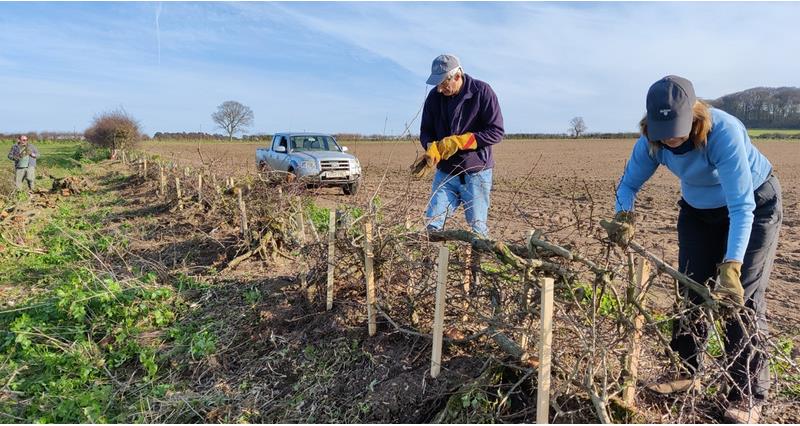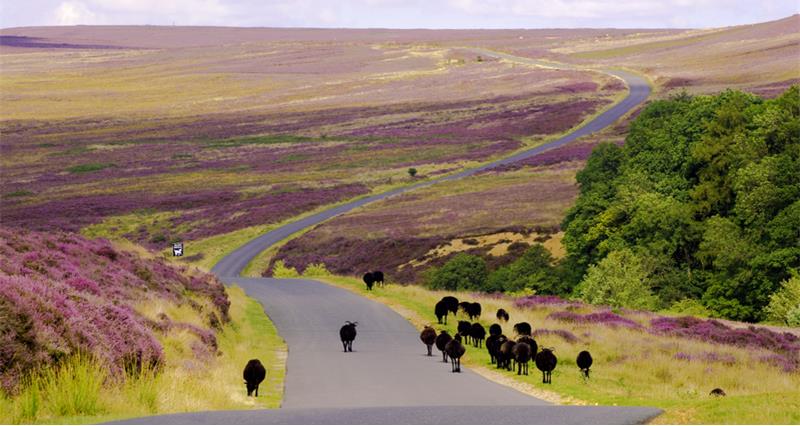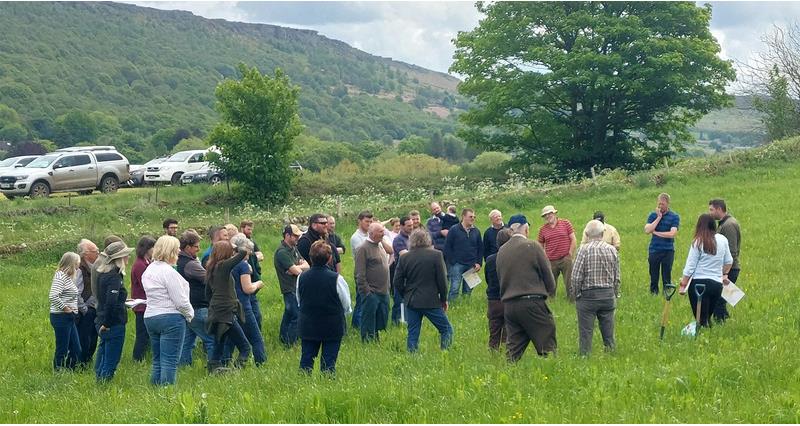Nathan has been estate manager at Deepdale Farm since January 2020, a 300 hectare farm located in north Norfolk, East Anglia. He trained in countryside management, and since 2016 has been involved with the farm including carrying out ecological assessments of woodland area and running conservation volunteering weekends.
About Deepdale Farm
The farm is eligible for FiPL as it is situated within the Norfolk Coast National Landscape (AONB) and is adjacent to an array of land-based designations, highlighting the unique landscape of north Norfolk, characterised by a flat, coastal landscape of predominantly Grade 1 arable farmland. The FiPL programme has been developed by Defra, with support from National Landscape (AONB) and NP staff across England and is available to Farmers situated within a protected landscape in England.
The farming operation has undertaken a major programme of work to adopt regenerative farming practices and to convert to organic. More than 60% of the farm is managed for wildlife and helps to actively engage visitors with the farm environment. The farm also has 35 hectares of woodland and whole fields in mid-tier Countryside Stewardship options.
Historically, Deepdale farm has been intensively farmed with root crops which resulted in the deterioration of soil health and increased soil erosion. The sandy loam soil of Deepdale Farm is inherently vulnerable to climatic changes, Nathan has therefore focused on increasing the farm's resilience.
The Deepdale Farm FiPL project
The FiPL programme has been a catalyst for change which has helped the farm to make use of unused farm buildings while also addressing the issues with soil degradation.
In less than 6 months Nathan's FiPl project, known as 'Engagement and Rural Skills at Deepdale Farm', has involved renovating an existing farm building which has been transformed into a dedicated venue for outdoor activities, learning (for farmers and the public), and conservation volunteering.
The project also provides additional resources to boost farm biodiversity and increases opportunities for public engagement.Â
"FiPL has made it possible for people to use the farm as a platform for education and engagement."
Estate Manager of Deepdale Farm Nathan Nelson
The project was fully funded by FiPL through a grant of ÂŁ18,000. This provided electricity, composting toilets, kitchen facilities, seats, lights, tools, PPE (Personal Protective Equipment) and safety gear.Â
Delivering for the climate, nature, people & place
The scale of the project means there are benefits to all four outcomes of FiPL which are defined across the themes of climate, nature, people and place.
Climate: The learning activities enabled a deeper understanding among farmers and the public about carbon storage and reduced carbon emissions on farmland.
Nature: The farm facilitates educational experiences that promote conservation volunteering, willow weaving and hedgerow management.
People: By providing a venue to bring in craftspeople, small businesses and other activities, the local community is involved in the project which in turn helps to contribute to the local economy.
Place: By developing previously unused farm buildings, the quality and character of the landscape is reinforced in the National Landscape (AONB).
Creating a meaningful project
Nathan recommends that applicants thinking of applying should consider and work with their FiPL officer to include local priorities in their project. He also emphasised the importance of creating a meaningful and interesting project that you really care about.
Overall, Nathan described his experience of the FiPL process as both positive and fascinating.Â


